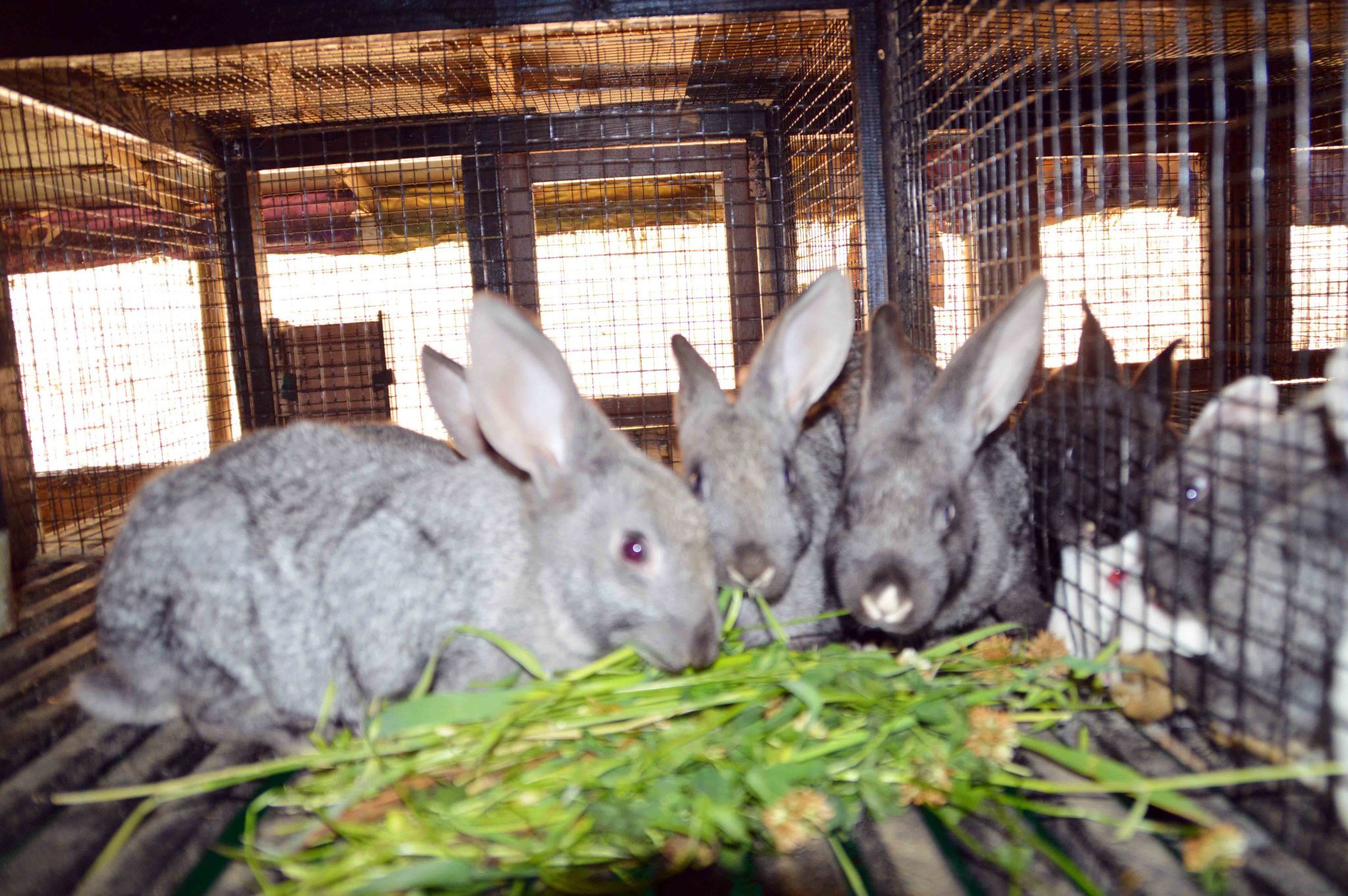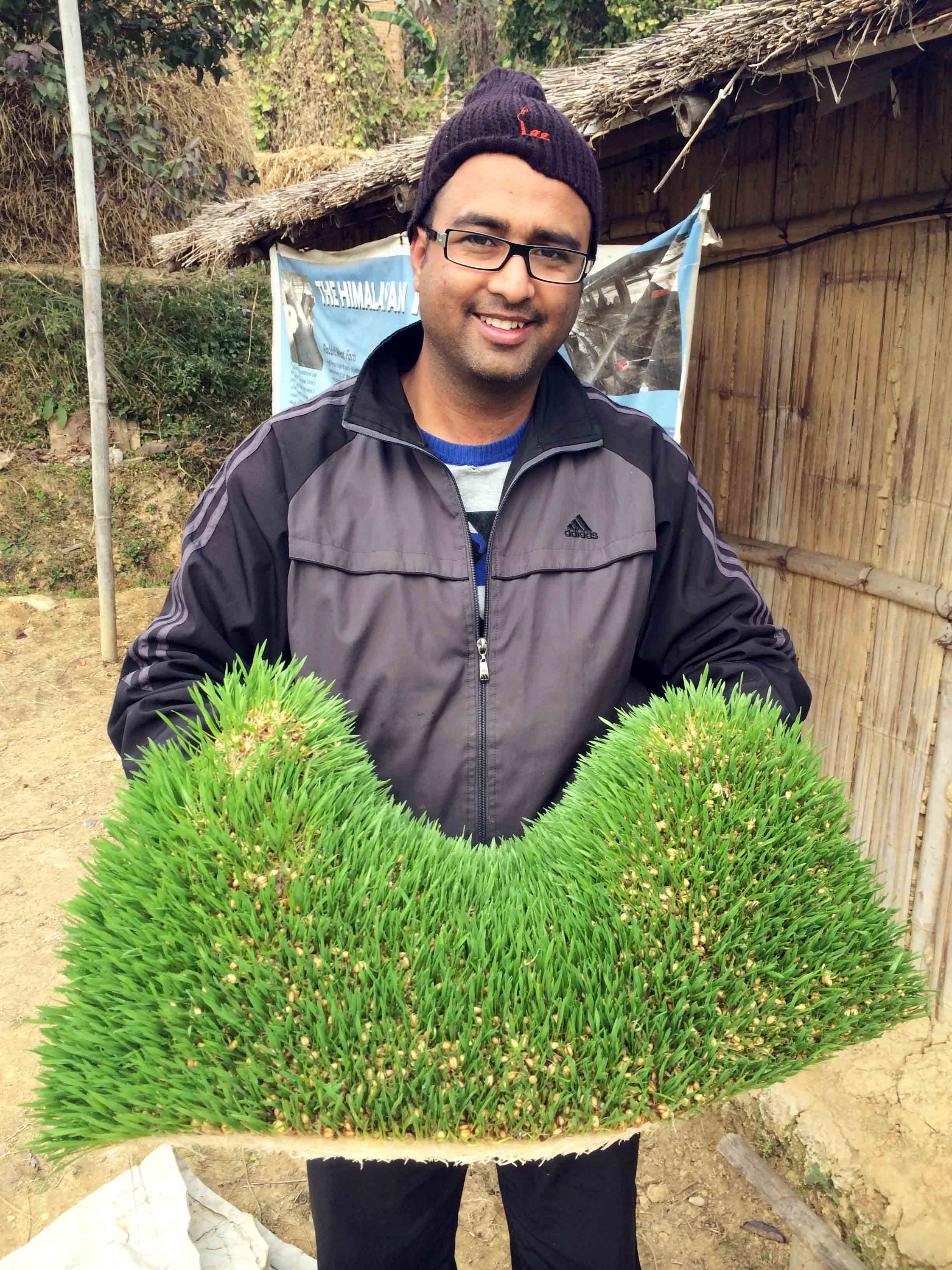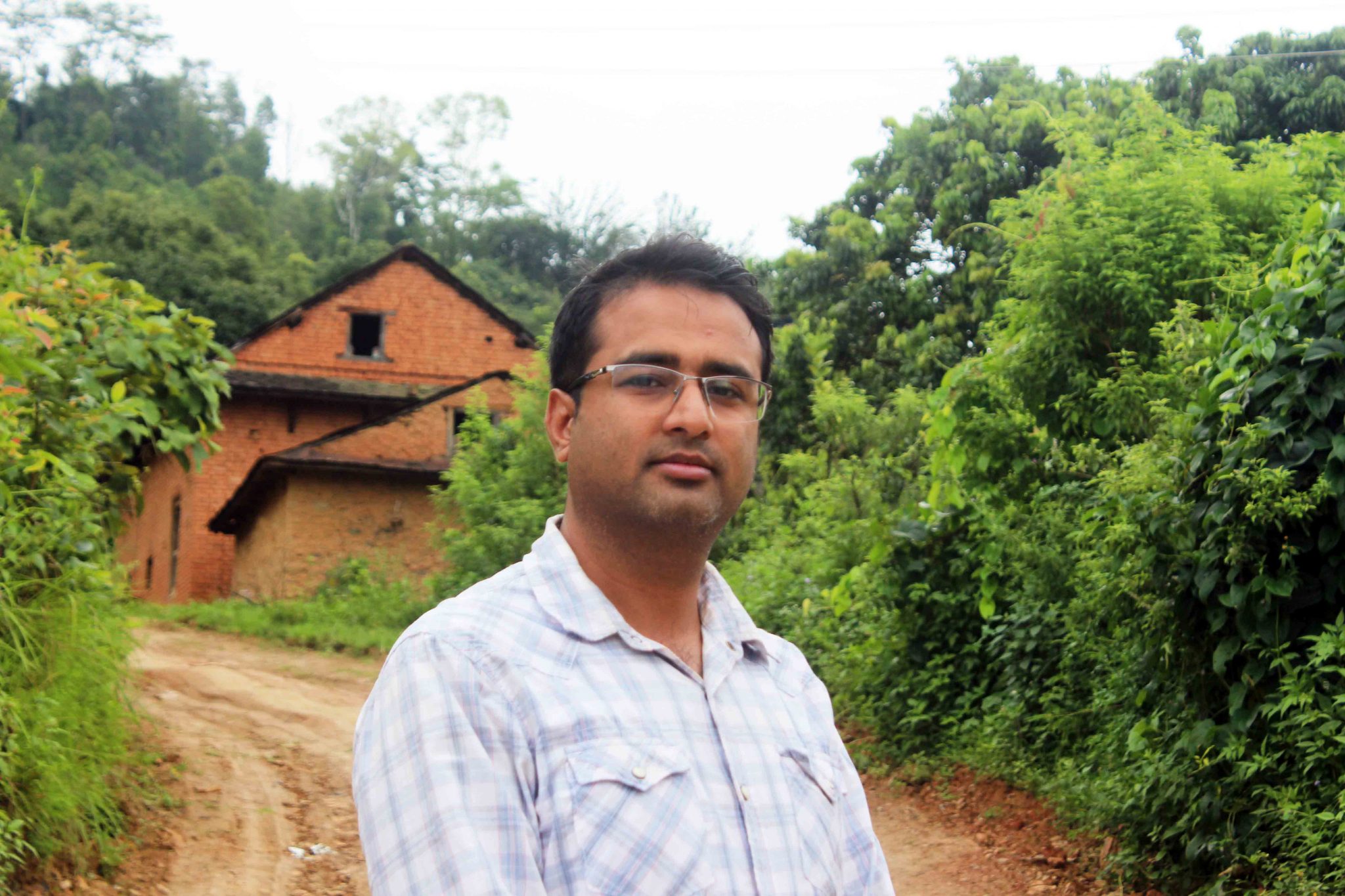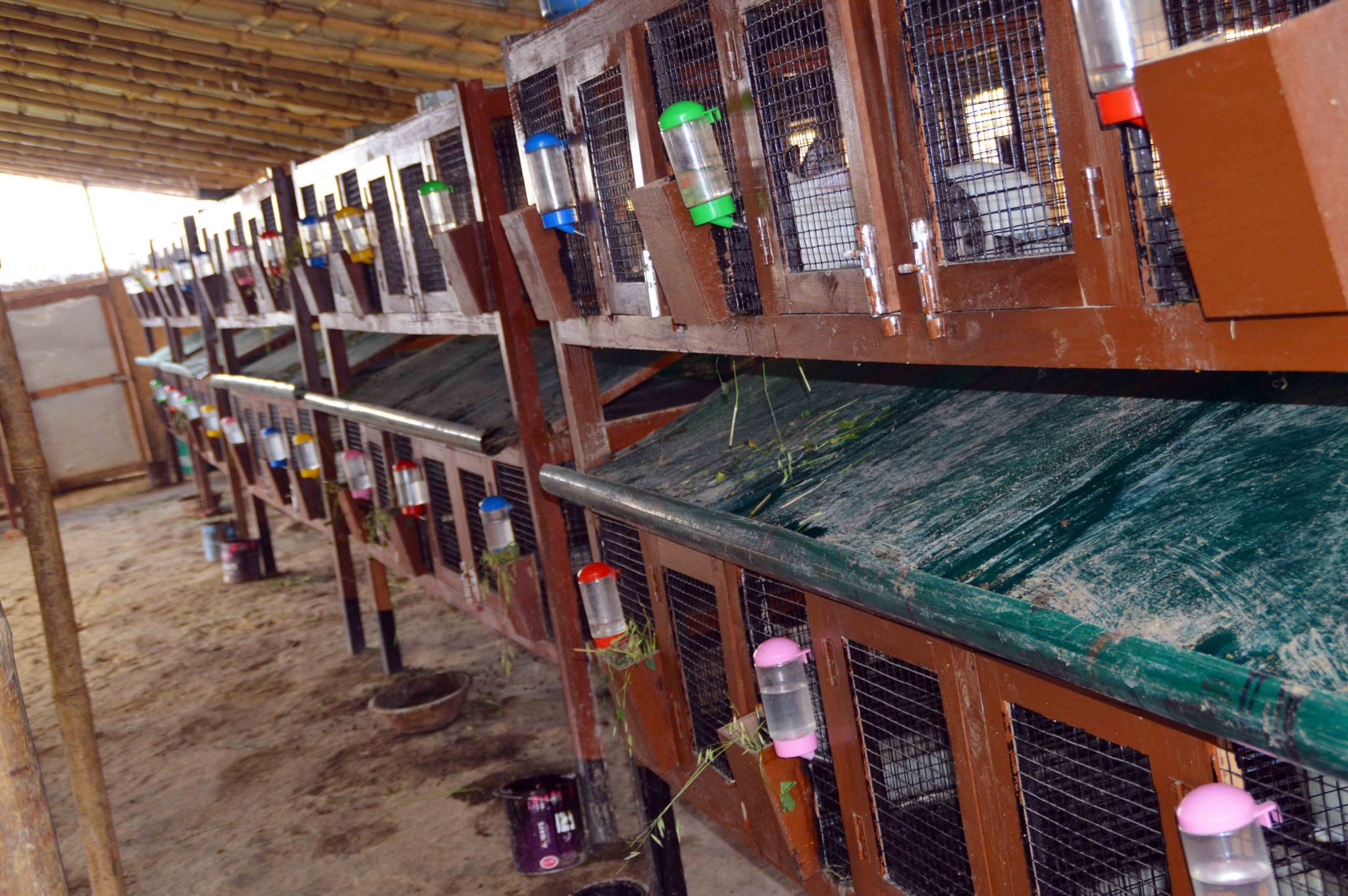After completing Master’s degree in Environment Management and working in a reputed non-government organization for over six years, Ujjwal Chapagain decided to change the course of his life.
With his vast knowledge and experience in agriculture sector, he saw an opportunity in rabbit farming, which no one was doing at a commercial scale in Nepal. This is what led Chapagain to establish The Himalayan Rabbit Farm, the first commercial rabbit farm in Nepal on August of 2012.
There is a lot of work done in Nepal on organic farming and vegetable production, but the organically and naturally produced meat option is almost not available. As rabbit meat is healthy, profitable and potential for expansion compared to other livestock, he found rabbit farming an appropriate option.
Starting a rabbit farm was not an easy job for him in a society that respects while collar official jobs. He had taken a huge risk to start the business. He had left the high paying job of a program coordinator in a renowned organization, and all his family members and friends were skeptic as he took the direction.
The Himalayan Rabbit Farm was started with an initial investment of 10 lakh rupees with a vision to introduce naturally produced, healthy rabbit meat as an alternative to intensively produced meat options. He had started the farm with 25 breeds brought from Nepal Agricultural Research Council (NARC).

The farm located in Balambu-5, Kathmandu works in the promotion, research and marketing of rabbit farming. So far, they have worked with 100 small farmers from various areas in Kathmandu, Bhaktapur, Rasuwa, Dolakha, Sindhuli and Myagdi. The communities in the districts have took up rabbit farming after the training.
The farm largely focuses on rabbit production, skin processing, farming promotion, meat tasting, marketing, etc. It is exploring different ways to promote rabbit farming to benefit farmers and currently looking to establish rabbit meat as a popular commodity in the Nepalese meat market.
The challenging beginning

Walking the path that was never travelled was not an easy job to do. He distributed free samples to many restaurants just to introduce them about rabbit meat.
People were hesitant to eat rabbit meat.
As almost none had known about rabbit meat at the time The Himalayan Rabbit Farm was started, it was really challenging for Chapagain to start. There was only NARC, and internet to help him on this. There was high mortality of rabbits even while using the feeds suggested by NARC. There was very high mortality in the beginning.
But, he didn’t lose hope and continued, as he didn’t have any other option.
He invested and spent a lot of time and resources to develop the market.
He even organized free rabbit-meat testing programs on various occasions just to introduce and promote rabbit meat in Nepali market.
One particular festival in Bhrikutimandap gave a wonderful response to Chapagain, and they ran out of stock in an instant when introduced rabbit meat in the fair. This made Chapagain feel that people will buy if properly marketed.
The Himalayan Rabbit Farm had partnered with Nepal Academy of Tourism and Hotel Management (NATHM) to develop recipes for rabbit meat items.
The present situation of rabbit meat industry in Nepal
The farm that was started with just 25 rabbits, saw a gradual growth over the years. Currently, there are around 500 rabbits in the farm.
From the time when none had heard about rabbit meat, rabbit dishes are now available in dozens of restaurants in Kathmandu, and rabbit-meat restaurants have opened. Rabbit meat items are going to be part of menu in numerous restaurants.
Chapagain finds a huge potential for rabbit meat industry in Nepal.
“Though poultry is expanding rapidly in Nepal, it’s depending upon feeds imported from India. So, Nepal’s currency is going out though the meat is produced in Nepal. But, rabbit meat can be produced utilizing the local resources of Nepal itself. It’s easy start rabbit farming, and doesn’t need huge investment to begin,” he expresses.
There is no social and cultural taboo to restrict rabbit meat consumption.
But, rabbit meat still holds very nominal share in the total meat consumption in Nepal.
Though skeptic in the beginning, his family and friends are very supportive to him these days.
Currently, The Himalayan Rabbit Farm also sells around 300 breeds on a monthly basis to the rabbit farmers.
Opportunities for rabbit farming in Nepal
These days, many people are interested for rabbit farming in Nepal.
During April earthquake, he started to lose hope as mortality was very high. He was about to give up. There was problem in the farm. Market was closed. However, various international professors and people in the field supported him. With more helping hands, he saw even bigger hope.
These days, many youths come to him seeking advices and suggestions for starting a rabbit farm. He has plans to grow the farm, and employ more people, and make the farm more standardized and systematic.
Along with rabbit farming, he also provides training and assistance, and rabbit breed to other interested farmers. He supplies rabbit meat to various fresh-houses and hotels in Kathmandu.

Rabbit meat eating habit is growing in Nepal with Availability of rabbit mo:mo in various restaurants in Kathmandu.
Chapagain feels that rabbit meat farming will start in various places all over Nepal, and rabbit consumption will be there. And, hotels and restaurants will have rabbit items in the menu. The rabbit meat industry will provide employment to many people.
The Achievements
The Himalayan Rabbit farm was felicitated with Surya Nepal Asha Social Entrepreneurship Award in the year 2013.
“Surya Nepal Asha Social Entrepreneurship Award was a grand award program. There were topmost renowned figures of Nepal in the program, including Hari Bamsha Acharya, Madan Krishna Shrestha, and Anuradha Koirala among others. Anuradha Koirala herself had handed over me the award. It was wonderful to receive the award in front of around 500 dignitaries representing different sectors. That time I felt like I had done something wonderful in my life,” Chapagain recalls with pride.
He also went to World Rabbit Congress in China in 2016, and developed linkages and network with experts and fellow rabbit farmers abroad. On the occasion, he also wrote and presented a joint paper with a renowned international professor having PhD in rabbit farming, and experience of conducting training in 30 different countries.
To the emerging entrepreneurs:
There are numerous opportunities to youths in Nepal itself, and startup trend is emerging. In this context, Chapagain suggests the youths to start small, gradually grow the business, and make it sustainable.
“Know your skills and know-hows. Find your strength and what you can do. If you start something that matches your skill and interest, success is not that hard,” he shares to the aspiring entrepreneurs.
“Build a team as per your business idea and interests, and make a circle as per your work,” he suggests.
“The most important thing is to research what you do. Have patience, and don’t seek for an overnight return,” he further shares.
Startups for a better Nepal!









